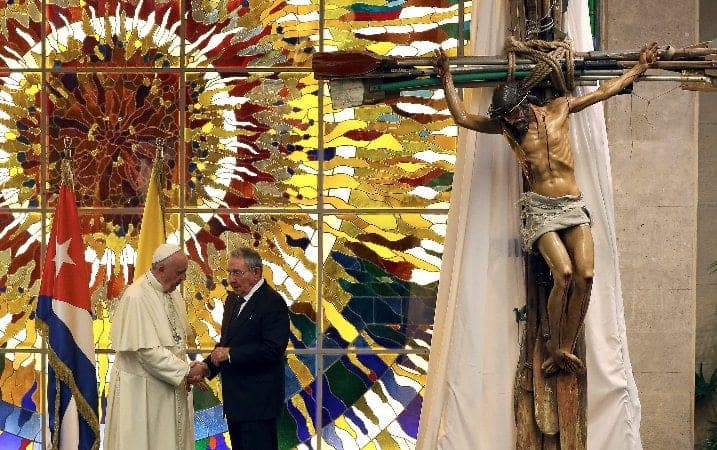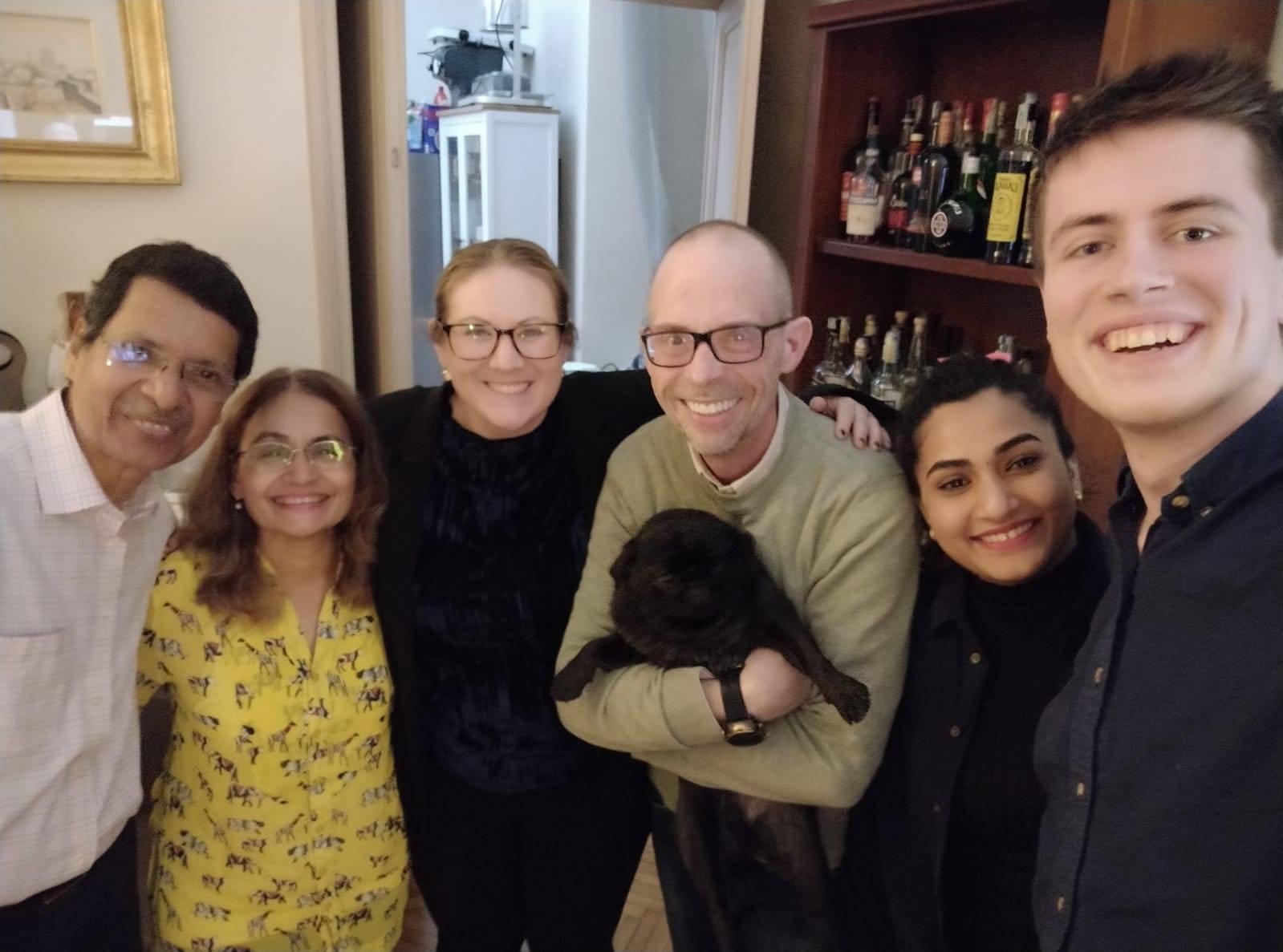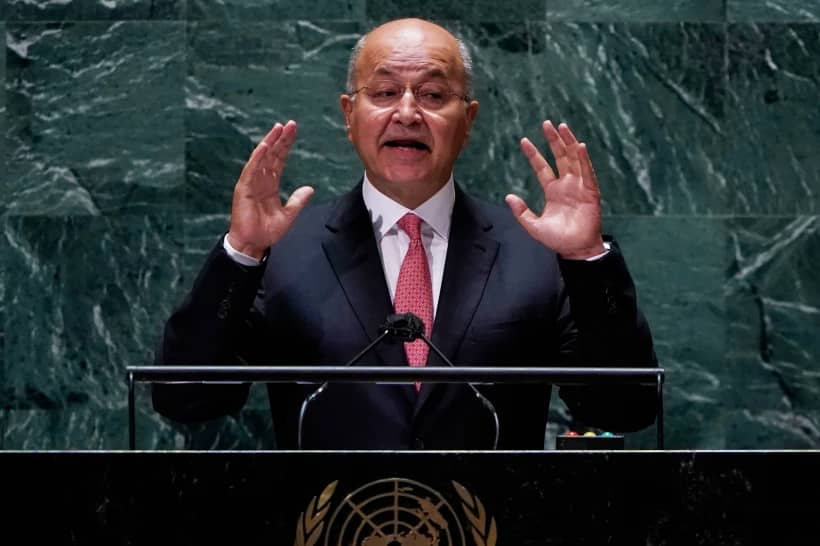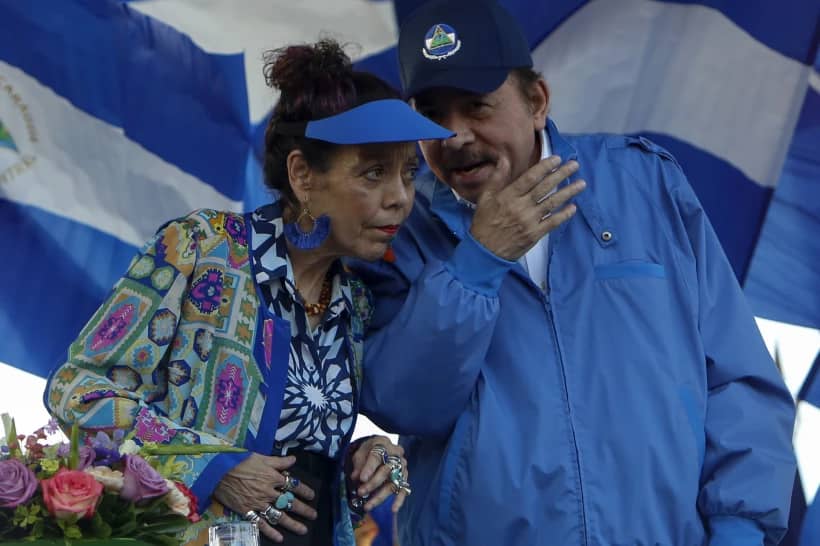HAVANA, Cuba–Pontiffs don’t normally traffic in irony, but Pope Francis delivered a major dose of it Sunday by celebrating a Catholic Mass in Havana’s Revolution Square, a space synonymous with a Communist Party that until recently banned religious believers, and one that remains dominated by images of revolutionary heroes such as Che Guevara.
On this day, however, a massive banner of Jesus Christ also loomed over the square with the motto, “Come to me.”
The pontiff was welcomed by thousands of enthusiastic Cubans, some practicing Catholics, but many simply anxious to hail the man who played a key role in the December 2014 deal to normalize relations with the United States.
Francis is visiting Cuba ahead of a Sept. 22-27 trip to the United States that will take him to Washington, New York, and Philadelphia. (Read the itinerary of the pope’s US visit here.)
He opened his Cuba stop Saturday by vowing to promote “cooperation and friendship,” and on Sunday he went out of his way to embrace the island nation, calling it “our island,” and praising its famed “taste for parties” and “beautiful things.”
After Sunday Mass, Francis held a private meeting with 89-year-old former Cuban leader Fidel Castro, with the Vatican describing the encounter as “intimate and familial,” and later in the day met his brother, Cuban President Raul Castro, at the presidential palace.
Yet for those with ears to hear, there was nonetheless some edge in what Francis had to say.
Gently, but unmistakably, Francis rolled out a critique of the Cuban revolution Sunday – including its penchant for ideological excess and the suffering it’s imposed over the decades on dissidents and religious believers.
In his homily, Francis called believers in Cuba to play their part in the transformations the country is experiencing, saying that being a Christian “entails promoting the dignity of our brothers and sisters, fighting for it, living it.”
Fighting for justice, of course, was the central claim of Cuba’s revolutionaries. Francis, however, made a clear distinction between a Christian model of service and what he described as “service which is self-serving.”
“There is a way to go about serving which is interested only in helping ‘my people,’ ‘our people’,” the pope said. Cubans, raised on decades of rhetoric about the revolutionary struggle on behalf of “the people,” will certainly have heard echoes of that language in the pope’s comment.
“This service always leaves ‘your people’ outside, and gives rise to a process of exclusion,” the pope warned.
Francis also chided a tendency to keep watch over others, which many Cubans might hear as an indirect reference to long years of close surveillance of potential dissidents and counter-revolutionaries.
One should care for others out of love, the pope said, “without looking to one side or the other to see what our neighbor is doing or not doing,” he said, and also without “judgmental looks.”
Most critically, Francis insisted that genuine service is never rooted in party ideology.
“Service is never ideological, for we do not serve ideas, we serve people,” he said.
While religious freedom has not been a major theme of the pope’s Cuba swing so far, he did use his address at the Havana airport Saturday to plead that the Church have “the freedom, the means and the space needed to bring the proclamation of the Kingdom to the existential peripheries of society.”
The word “means” was likely, in part, a reference to tensions over the return of Church properties expropriated after the Cuban revolution.
In an extemporaneous talk to priests, men and women religious, and seminarians Sunday night, among other things Francis criticized aborting children shown by pre-natal testing to have degenerative illnesses. That, too, was a departure from political orthodoxy in Cuba, one of the few Latin American nations where abortion is legal and available upon request.
To be sure, Francis has avoided direct confrontation with Cuba’s rulers, expressing respect for both Castros.
Yet one anti-Castro dissident also reported she’d been invited to greet Francis Saturday night, but she was detained before she could reach the residence where the pontiff is staying.
A Vatican spokesman wouldn’t deny it, merely insisting that no formal “meeting” was planned.
During the Mass Sunday morning, another dissident approached Francis in the popemobile and requested a blessing, which the pontiff appeared to be in the process of granting when the young man was wrestled away by security agents while chanting “Down with Fidel!”
In advance of Sunday’s events, at least one Socialist stalwart may have sensed what was coming.
Aleida Guevara, daughter of Che, declined a Communist Party invitation to attend the papal Mass, saying doing so would have been “hypocritical.”
In the end, perhaps what Francis is trying to accomplish here is to cash in some of the political capital he amassed by helping broker Cuba’s deal with the United States.
If so, his message would boil down to this: Yes, you’ve got a friend in Rome, but that friend is capable of being critical.
Going forward, the question is how closely Cuban authorities may be inclined to listen to that critique.
For now, Francis can point to at least one minor victory: In response to a Vatican request, Cuban authorities agreed to provide unrestricted Wi-Fi access, a rarity on this island nation, during a papal encounter with Cuban youth Sunday night so that they could post instantaneous thoughts and reactions on social media.















